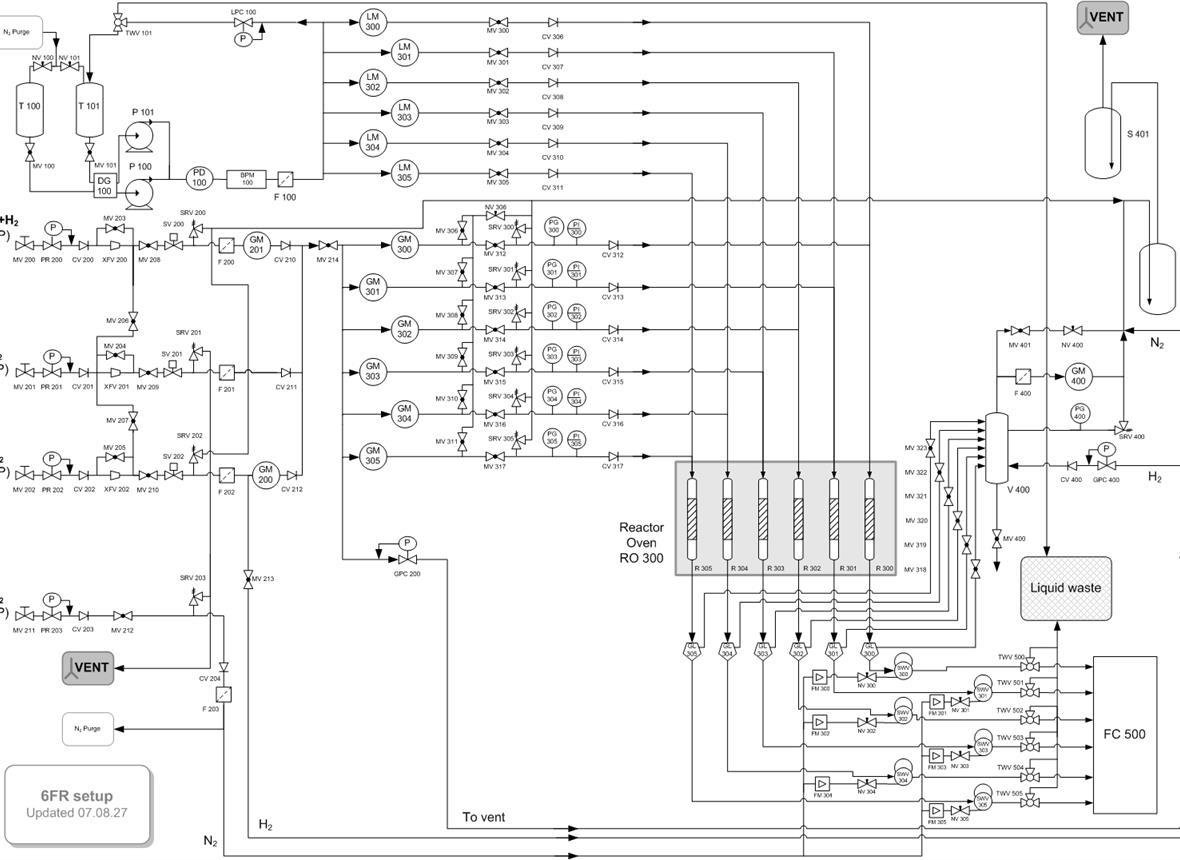The
deactivation mechanism of a commercial Rh/CeO2ZrO2 catalyst in raw
bio-oil steam reforming has been studied by relating the evolution with time on stream of the bio-oil conversion and products yields and the
physicochemical properties of the deactivated catalyst studied by XRD, TPR, SEM, XPS, TPO and TEM. Moreover, the
reversibility of the different deactivation causes has been assessed by comparing the behavior and properties of the catalyst fresh and regenerated (by coke combustion with air). The reactions were carried out in an experimental device with two units in series: a thermal treatment unit (at 500 °C, for separation of pyrolytic lignin) and a
fluidized bed reactor (at 700 °C, for the reforming reaction). The results evidence that structural changes (support aging involving
partial occlusion of Rh species) are irreversible and occur rapidly, being responsible for a first deactivation period, whereas encapsulating coke deposition (with oxygenates as precursors) is reversible and evolves more slowly, thus being the main cause of the second deactivation period. The deactivation selectively affects the reforming of oxygenates, from least to greatest reactivity. Rh
sintering is not a significant deactivation cause at the studied temperature.
